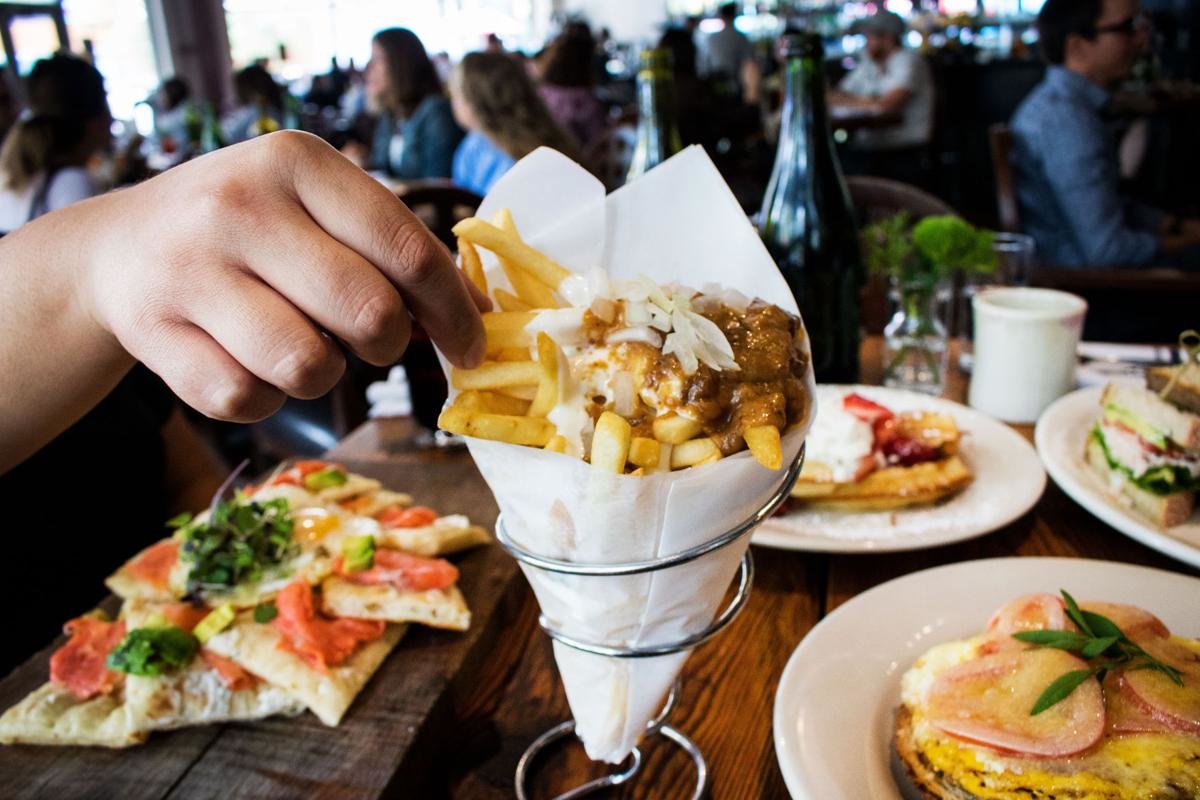
Sometimes people are at war with food.
You hear things like this: “I don’t eat pizza”. “I would never eat fried chicken — not even as an occasional treat”. Or: “No way — no dessert for me…not ever!”
We are all entitled to our choices. But does it logically follow that it’s rational, accurate thinking to make these sweeping declarations?
I say no.
Consider, “I don’t eat pizza”. If you don’t like pizza, that’s one thing. But if you like pizza (and even the pickiest eaters usually do), then what do you object to? Dough or bread? The person who doesn’t eat pizza eats dough or bread in other contexts. He doesn’t say, “I never eat bread.” He’ll say, “In the right dose, I’ll eat bread.” What about tomato sauce? “Of course I eat tomato sauce”. Does something magically happen to tomato sauce when it’s poured on dough? Of course not.
These contradictions provide a hint at the illogical thinking going on here.
There’s no reason to be at war with pizza. There’s no reason to be at war with ANY kind of food, at least when that food isn’t known to be poison. People who make the sweeping generalizations act and think like the food in question — pizza, fries, hot fudge sundaes — are poison. But the poison only applies at a certain DOSE.
The name of the game with respect to eating is to take in enough calories to provide you nourishment, but not so much you get fat. Ditto for nutrition. Nutrition isn’t about always and only eating vegetables, and never eating sweets, fat or carbs. That’s absurd. Nutrition is about the right balance and intake.
In psychology and philosophy, we use the phrase “intrinsic value”. It’s the error of treating something as ALL good or ALL bad when it’s really the factual context that matters. Instead of saying “pizza is bad” or “chocolate cake” is bad, we should be saying, “The dose makes the poison”. We should be looking at balance, facts and context, not phony absolutes.
Whenever I meet someone who has lost weight and SUSTAINED the weight loss, they always tell me they did something other than the intrinsic value approach to dieting. They usually say they did something like calorie-counting. Or lifestyle change, a phrase doctors love to use but does get to the heart of the matter. Losing weight is easy compared to keeping it off. Millions of people lose weight and then gain all or most of it back. They’re living monuments to the intrinsic value approach to eating. So are the people at war with food. They might never gain weight back, but they’ll always be hungry.
Things are not intrinsically good or bad. They’re good or bad in the context relevant to our well-being. Anything that promotes health, well-being and survival for an individual is a good thing. Declaring war on food items that — when over-consumed — lead to bad results makes no sense. It’s not the food that makes people sick and overweight. It’s the abuse of the food. Small doses of alcohol can enhance and sustain life. Alcohol abuse is tragically self-destructive. Alcohol is not intrinsically good or bad. It depends on who’s using it, and how they’re using it.
Most of us associate stern, shaming moralists with an earlier era. We think the Puritans of the 1600s or the Victorians of the 1800s, or maybe the 1950s. But I see just as much of that irrational mentality in today’s world. It’s almost as if the people declaring war on things that taste good and add to life’s enjoyment want to vanquish pleasure. That’s why so many of them waste away into an undernourished state, which is arguably just as bad as obesity or over-indulgence.
And if they’re honest, most of them will tell you: “I’m in a bad mood because I’m constantly hungry.” It has been confessed to me more than once.
If this is you, then it’s time to challenge your assumptions and move toward a more rational outlook on eating. Life’s too important.
Follow Dr. Hurd on Facebook. Search under “Michael Hurd” (Rehoboth Beach DE). Get up-to-the-minute postings, recommended articles and links, and engage in back-and-forth discussion with Dr. Hurd on topics of interest. Also follow Dr. Hurd on Twitter at @MichaelJHurd1, drmichaelhurd on Instagram, and see “Michael Hurd” on MeWe.
